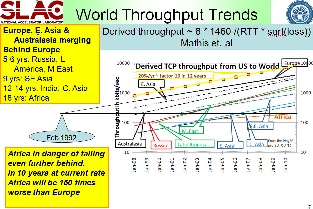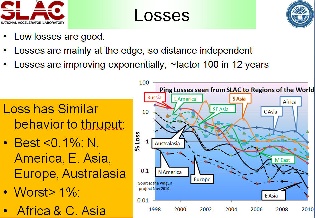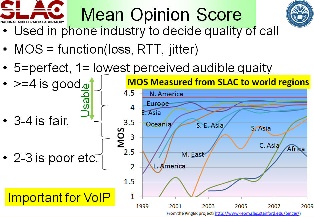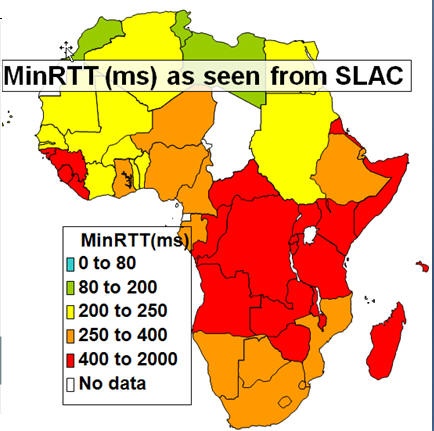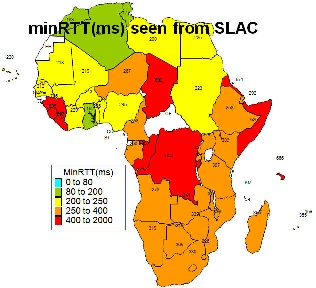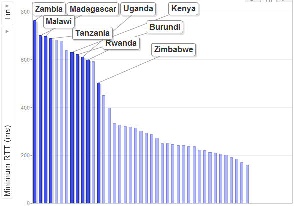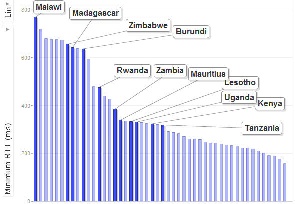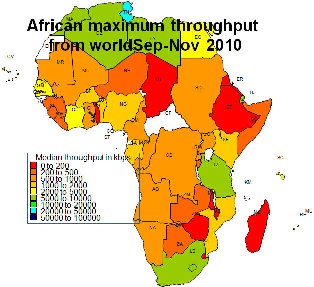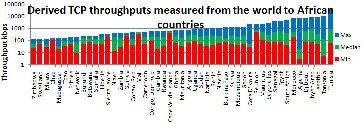...
One can get an idea of how far behind Africa is compared to the rest of the world by comparing the PingER Internet throughputs, losses and Mean Opinion Scores (MOS).
Throughput | Losses | Mean Opinion Score (MOS) |
|---|---|---|
|
|
|
Minimum RTTs of <~ 400ms are typically a signature of a geostationary link. Looking at the minimum RTTs to African countries and comparing 2009 with 2010 one can see the impact of the new fibre/terestrial routes in particular for East Africa in the apparent reduction of minimum RTTs below 400ms for several countries.
minRTT 2009 | minRTT 2010 | minRTT to African countries 2008 | min-RTT to African countries 2010 |
|---|---|---|---|
| |
| |
The derived throughputs measured from monitors around the world to African countries for September to November 2010 is shown below. The map shows the maximum of the average monthly derived TCP throughput for the hosts in the country. We chose the hosts with the maximum throughput since these are typically at the academic and research sites in the country and represent the best available internet connection in the country. The differences in the minimum median and maximum average monthly throughputs for hosts in each country are also shown sorted by maximum throughput. A spreadsheet is available.
|
|
|---|---|
|
|
BGP Prefixes
The Border Gateway Protocol (BGP) backs the routing decisions on the Internet. It maintains a table of IP networks or 'prefixes' which designate network reachability among autonomous systems (AS). Thus the number of prefixes is roughly the number of networks that appears on the Internet. The number of BGP prefixes for Africa is shown below. The data is from BGPMon and there is a spreadsheet here. It is seen that for Africa Egypt leads by a factor of about two over South Africa (the country with the second most BGP prefixes). It is also seen that when one compares Africa with the rest of the world it has fewer networks than all other regions both for IPv4 and the upcoming IPv6 prefixes (note the number of African countries with no IPv6 prefixes).
...
